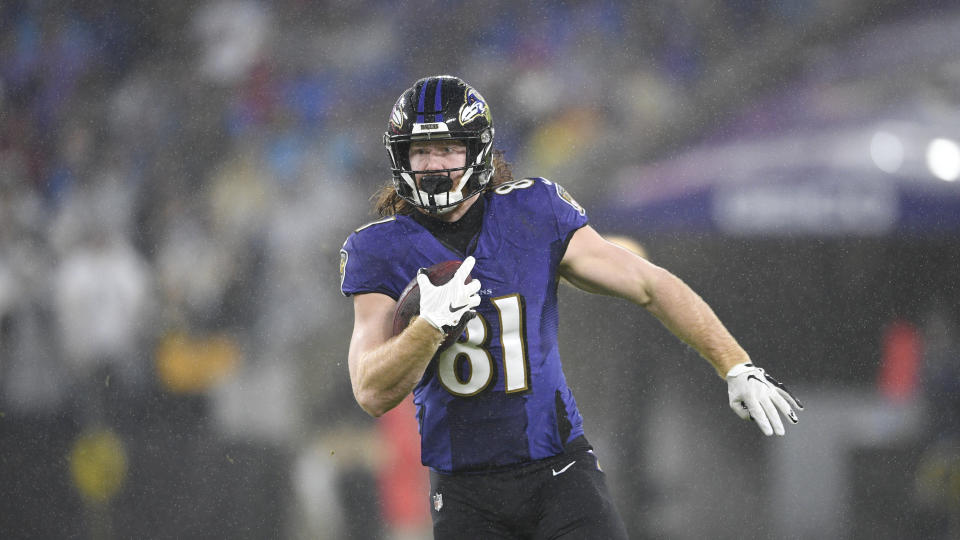Ravens TE Hayden Hurst says he attempted suicide in 2016

Baltimore Ravens tight end Hayden Hurst has come a long way.
Right now, he is an NFL tight end playing on an $11 million contract as a key cog in the league’s top-ranked offense from last year. According to recent interviews, however, he was in a much, much darker place just four years ago.
Hurst told First Coast News on Monday that he attempted suicide in January 2016:
"I woke up in the hospital," he recalled. "I didn't know what happened. I had to have a friend fill me in. Apparently, I had been drinking and went into my apartment and cut my wrist. My friend found me in a puddle of blood. He called 911."
It was in that South Carolina hospital that Hurst had what he calls his "come to Jesus moment." He was handcuffed to a bed. He says he looked and said "What happened? What are you doing?" That was the moment he figured out that he needed to ask for help.
He also told the Florida Times-Union last month that having access to a gun at the time would have ended much worse for him:
“If I had a gun that night, I probably would have killed myself,” Hurst told the Times-Union. “I’m glad I only had a knife. It’d be a totally different story.”
At the time, Hurst was a 22-year-old walk-on freshman for the South Carolina football team. Not many successful football careers begin in college at 22, but Hurst had to start there out of necessity after a baseball career that topped out at low-level rookie-ball in the Pittsburgh Pirates organization.
Hurst showed clear promise as a baseball prospect, as evidenced by the $400,000 signing bonus he received from the Pirates out of high school. A Florida State scholarship and sign-ability concerns likely led to Hurst being only drafted in the 17th round, but that bonus amount was the fourth-largest the Pirates gave to any of their draftees that year.
Sadly, the mid-90s heat that got Hurst drafted was made useless when he developed the yips, a complete loss of command. That led to Hurst finding solace in alcohol and drugs, telling the Times-Union “The goal was always just to get blacked out. Anything, Xanax or cocaine, that made that feeling go away, I tried it.”
Hurst would later go sober after his suicide attempt, and he celebrated his fourth year of sobriety last month. Despite his late start, Hurst became a first-round NFL draft pick after posting 1,175 receiving yards over his next two years with the Gamecocks. And he now finds himself as arguably the most well-rounded of the Ravens’ three-headed monster at tight end, between Pro Bowl receiving threat Mark Andrews and blocking specialist Nick Boyle.
More importantly, Hurst has become outspoken in ending the stigma of mental health struggles, having also lost an uncle and cousin to suicide. As he told the Baltimore Sun last year, that required years of learning how much his story could help:
“It’s tough at first, because you have to figure out what’s going on inside,” he said. “You have to be comfortable with who you are and who you’ve become. So it probably took me two or three years to figure out my story could really impact other people and hopefully shed some light that, ‘Hey, he was really hurting. He was in a dark place. But he was able to dig himself out.’ ”
The National Suicide Prevention Lifeline can be reached at 1-800-273-TALK (8255) at all hours if you or someone you know is struggling with mental illness or thoughts of suicide.
More from Yahoo Sports:

